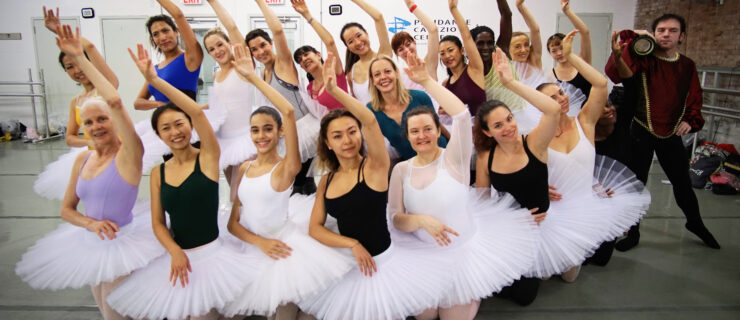Ask Amy: Is it Okay to Seek Feedback After an Audition?
I’m often cut from the final round of auditions. Is there a polite way to follow up with directors and ask them for feedback? —Megan
When it comes to seeking feedback from directors, I think it depends on the situation and the method of communication. If it’s a large cattle call and you’ve been cut before the final round, sticking around to ask why isn’t a good idea. “I don’t think there is much a dancer can do to ‘hang in there’ till the end of the audition if the director is not interested,” says Tulsa Ballet artistic director Marcello Angelini, who says he receives more than 1,200 audition requests a year. It’s one reason why he and many other directors request videos ahead of time. “If a dancer doesn’t fit the look, the taste, the movement quality and technical or versatility requirements of the company, I urge them not to audition. I’d rather they spend their hard-earned funds on a place that’s interested in them.”
However, it’s different if you know that you’ve been seriously considered, especially if you have a chance to speak face to face with the director. “Once individual interest has been shown, I think it’s okay to inquire,” says Pacific Northwest Ballet artistic director Peter Boal. “I’ve held very few company auditions, but I have spoken individually with each of the finalists. I’ve told them what I feel their strengths are and what potential weaknesses might be. This dialogue can be extremely constructive for a dancer to hear.”
I think the best time to ask directors for feedback is if you’re granted the opportunity to speak with them right after the audition. That way you’re fresh in their minds. Let them know how interested you are in their company, and ask if there’s anything you should be working on to improve your chances in the future. If you can’t speak to them in person, you could try emailing the company, although I personally never had much luck with this. Directors are busy people, and since email is an indirect form of communication (usually filtered through a company manager), you’re at greater risk for being ignored. If you do email — and I’d recommend sending only one, not multiple follow-ups — be brief, professional and gracious. Thank them for the audition, reaffirm your interest in the company and let them know you’d welcome any feedback.
Any response you do receive will depend on the director, and it may not be more than a few words of advice. “Asking for more or asking for another shot on the spot would be unwelcome,” says Boal. “You can’t arm wrestle your way into a contract. If the director is not interested, then set your sights elsewhere or take the criticism to heart and come back next year to demonstrate growth.”
Keep in mind, too, that there are often conditions beyond your control, such as which positions are available or height requirements. (At 5’8″ , I was frequently too tall.) And sometimes the reason is not so much that there’s something “wrong” with your dancing, but that a slightly stronger candidate edged you out. But feedback can help you gauge whether a company is worth auditioning for again. For instance, one director told me that he really liked me but didn’t have a spot available, and to keep in touch. Another, through his assistant, simply said I wasn’t the right fit. The reason why was not explained, but he made it clear that auditioning again would be futile.
Angelini advises dancers to focus more on their audition preparation than on the results. “Choose wisely where you audition—research the repertory of a company and see if it fits you,” he says. “Work honestly and passionately in the studio, park you ego at the door and then you will be confident that you are at the best of your abilities at the audition. That’s all you can do—the rest is up to the unknown.” If you receive a rejection, try not to dwell on what the director thinks of you. It’s just one person’s opinion. You’re better off if you keep moving forward.





